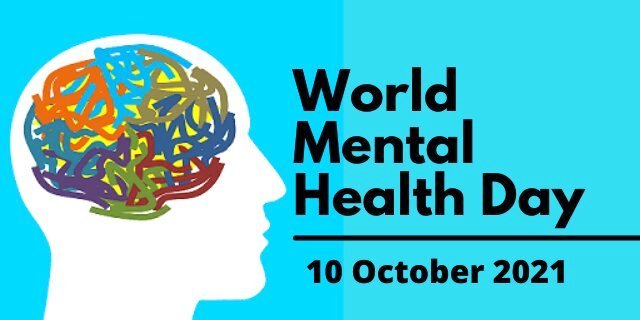
In a press release made public on October 8, 2021, the World Health Organization’s new Mental Health Atlas highlights an unsatisfactory picture of a worldwide failure to provide people with the mental health services they need, at a time when the Covid-19 pandemic is highlighting a growing need for mental health support.
This information is inline with the commemoration of the 2021 edition of the World Mental Health Day observed every October 10.
Mental Health Context in Cameroon
Placed under the theme “Mental health in an unequal world,” this year’s edition comes at time when Cameroon is especially vulnerable to mental health problems related to Covid-19, due to the challenges of a weak health-care system, an inadequate mental health workforce, insufficient financing to pay for health care, lack of access to mental health medications, and the added complexity posed by the ongoing humanitarian crises. Daily lives in Cameroon have changed considerably as a result of the Covid-19 pandemic. The past months have brought many challenges for health-care workers carrying out their activities in difficult circumstances, going to work with the fear of returning home with Covid-19. For students, adapting to taking lessons from home, with little contact with teachers and friends, and anxious about their futures has been a real trauma. For workers whose livelihoods are threatened, for the vast number of people caught in poverty or in fragile humanitarian settings with extremely limited protection from Covid-19 and for people with mental health conditions have been experiencing even greater social isolation than before. Added to this is the grief of losing loved ones, sometimes without being able to say goodbye.
The economic consequences of the pandemic are already being felt, as companies let staff go in an effort to save their businesses, or shut down completely. Given past experience of emergencies, it is expected that the need for mental health and psychosocial support should substantially be increased in Cameroon in the coming months and years. Investment in mental health programmes at the national and international levels, which have already suffered from years of chronic underfunding, is now more important than it has ever been.
Note from WHO on the occasion of World Mental Health Day
The latest edition of the WHO Mental Health Atlas, which includes data from 171 countries, provides a clear indication that the increased attention given to mental health in recent years has yet to result in a scale-up of quality mental services that is aligned with needs. The release stated that “despite the evident and increasing need for mental health services, which has become even more acute during the Covid-19 pandemic, good intentions are not being met with investment,” said Dr Tedros Adhanom Ghebreyesus, Director-General of the World Health Organization. “We must heed and act on this wake-up call and dramatically accelerate the scale-up of investment in mental health, because there is no health without mental health.” Issued every three years, the Atlas is a compilation of data provided by countries around the world on mental health policies, legislation, financing, human resources, availability and utilization of services and data collection systems. It is also the mechanism for monitoring progress towards meeting the targets in WHO’s Comprehensive Mental Health Action Plan.
Lack of progress in leadership, governance and financing
The Atlas indicates that last year, of the targets for effective leadership and governance for mental health, provision of mental health services in community-based settings, mental health promotion and prevention, and strengthening of information systems, were near achievement. “In 2020, just 51% of WHO’s 194 Member States reported that their mental health policy or plan was in line with international and regional human rights instruments, way short of the 80% target. And only 52% of countries met the target relating to mental health promotion and prevention programmes, also well below the 80% target. The only 2020 target met was a reduction in the rate of suicide by 10%, but even then, only 35 countries said they had a stand-alone prevention strategy, policy or plan,” the released underlined.
Slow Transfer of care to communities
While the systematic decentralization of mental health care to community settings has long been recommended by WHO, only 25% of responding countries met all the criteria for the integration of mental health into primary care. While progress has been made in training and supervision in most countries, the supply of medicines for mental health conditions and psychosocial care in primary health-care services remains limited.
According to WHO, more than 70% of total government expenditure on mental health was allocated to mental hospitals in middle-income countries, compared with 35% in high-income countries. This indicates that centralized mental hospitals and institutional inpatient care still receive more funds than services provided in general hospitals and primary health-care centres in many countries. “There was, however, an increase in the percentage of countries reporting that treatment of people with specific mental health conditions (psychosis, bipolar disorder and depression) is included in national health insurance or reimbursement schemes – from 73% in 2017 to 80% (or 55% of Member States) in 2020.
Global estimates of people receiving care for specific mental health conditions (used as a proxy for mental health care as a whole) remained less than 50%, with a global median of 40% of people with depression and just 29% of people with psychosis receiving care,” WHO explained.
Increase in mental health promotion, but effectiveness questionable
The increase in countries reporting mental health promotion and prevention programmes, from 41% of Member States in 2014 to 52% in 2020 was encouraging. However, 31% of total reported programmes did not have dedicated human and financial resources, 27% did not have a defined plan, and 39% had no documented evidence of progress and/or impact.
Slight increase in the mental health workforce
The global median number of mental health workers per 100 000 population has increased slightly from nine workers in 2014 to 13 workers per 100 000 population in 2020. However, there was a very high variation between countries of different income levels, with the number of mental health workers in high-income countries more than 40 times higher than in low-income countries.
The global targets reported in the Mental Health Atlas are from WHO’s Comprehensive Mental Health Action Plan, which contained targets for 2020 endorsed by the World Health Assembly in 2013. This Plan has now been extended to 2030 and includes new targets for the inclusion of mental health and psychosocial support in emergency preparedness plans, the integration of mental health into primary health care, and research on mental health. “The new data from the Mental Health Atlas shows us that we still have a very long way to go in making sure that everyone, everywhere, has access to quality mental health care. But I am encouraged by the renewed vigour that we saw from governments as the new targets for 2030 were discussed and agreed and i’m confident that together we can do what is necessary to move from baby steps to giant leaps forward in the next 10 years,” said Dévora Kestel, Director of the Department of Mental Health and Substance Use at WHO.
Ingrid KENGNE
















